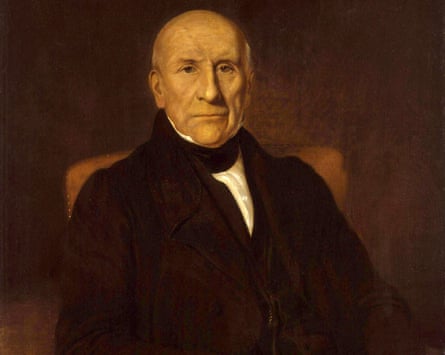William Gladstone’s father, John, was an absentee landlord who never visited his estates in the Caribbean but became fabulously rich from the proceeds of slavery.
His pursuit of profit at the expense of free – and then cheap – labour in Guyana transformed the South American country for ever.
Dr Nick Draper of UCL said: “The property in the West Indies was the engine for the family’s wealth between the 1820s and the 1830s.
“In a period when slavery was supposed to be in decline, John Gladstone invested very heavily in the slave economy. He earned very high returns on his assets.”
John Gladstone owned, or had mortgages over, 2,508 enslaved Africans, and was paid £105,781 in compensation after slavery in the colonies was abolished in 1833. He received £90,729 for the 1,702 in Guyana but only £15,052 for 806 Jamaicans. An African in what was then British Guiana was worth £105-£110. In Jamaica it was half this.
Draper said: “The profitability of enslaved people in British Guiana was much higher. The labour you were extracting from them by violence and force was worth more.
“William Gladstone was entangled in this. His career was financed by his father and was in large measure financed by slavery, no question.”
William Gladstone served as prime minister four times and had two stints as chancellor of the exchequer. He was 82 when his final term as PM began in 1892.

Draper added: “William Gladstone’s posture on slavery is an extraordinary story. In later life Gladstone appeared mortified by what he had done, but his first substantive speech in parliament is in defence of his father’s ownership of enslaved Africans. He is saying ‘it’s not that bad and it wasn’t true that they were dying off in large numbers’. But Gladstone also argued later in life that emancipation cost his family lots of money.”
By the time of abolition in 1833, about 480,000 Africans had been transported to Guyana.
An “apprenticeship” system meant that Africans had to work for free for between four and six years after 1833. But John Gladstone soon encountered an acute labour crisis as the Africans left for the towns.
He applied to the Colonial Office for permission to import indentured labourers from India, another mass migration movement that further transformed Guyana, known as “the Gladstone experiment”. The indentured labourers worked in return for starvation wages, accommodation, food and medical attention.
John Gladstone brought 419 Indians to Guyana on his ship Hesperus in 1837. Within a few months, 39 had died and 70 were ill.
An investigation by the British government discovered that many Indian workers who had signed up were now in a “wretched condition”. On John Gladstone’s estate, Vreed-en-Hoop – the colony was formerly in the possession of the Dutch – there were reports of flogging and salt being rubbed into the resulting wounds. The investigating magistrate recommended the estate’s general manager and the overseer be dismissed, although this never happened.
Under pressure from the anti-slavery movement, the British suspended the importation of Indian people to Guyana. But four years later it was reintroduced.
Nigel Westmaas, professor in Africana Studies at Hamilton College, New York, said: “Almost 238,000 Indians came to Guyana, and by 1911 Indians outnumbered the Africans. It was a horrific system, with six-year indentureship with terrible conditions, denials of return passages – but it was not on the scale of slavery.”
Descendants of Africans now make up 30% of the population. Another 40% of Guyanese are descended from indentured workers from India. Multi-ethnic and Amerindian peoples largely make up the remainder.
Consequently, the politics of Guyana are based around ethnicity, with the People’s Progressive party in power today, supported mainly by the Indo-Guyanese population. The economy is one of the fastest growing in the world, following the discovery of offshore oil deposits in 2015.
Eric Phillips, chair of the country’s reparations committee, said: “Guyana has already made reparations to the Amerindians. The country is also split between those who have Indian backgrounds, descendants of indentured labourers who kept their culture and maintained some capital and land, and the Africans whose descendants are today locked out of this new economy because of the lack of generational wealth.
“Africans died to build this country and have been excluded. Indentured slavery was an odious contract for the Indians, but slavery was a crime against humanity. They kept their culture, but we lost ours.”
Join the exciting world of cryptocurrency trading with ByBit! As a new trader, you can benefit from a $10 bonus and up to $1,000 in rewards when you register using our referral link. With ByBit’s user-friendly platform and advanced trading tools, you can take advantage of cryptocurrency volatility and potentially make significant profits. Don’t miss this opportunity – sign up now and start trading!









Recent Comments